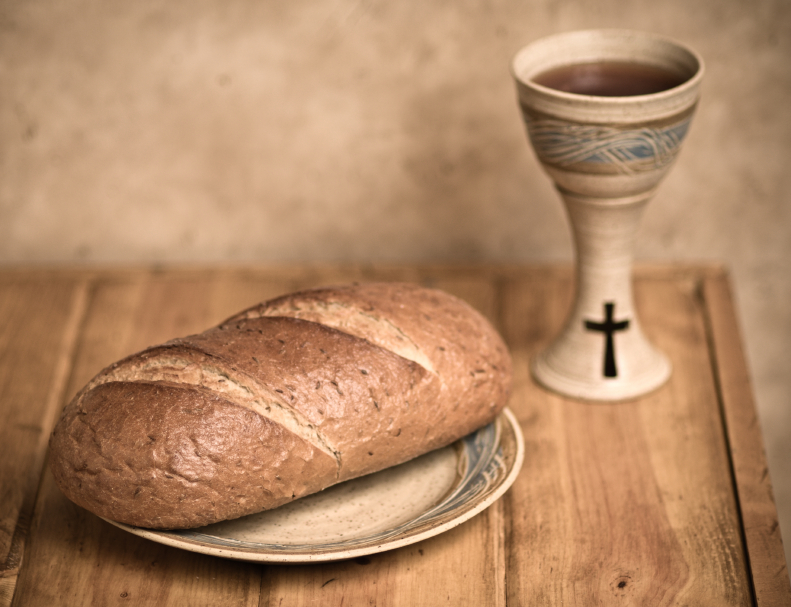“Let me bring a little bread, that you may refresh yourselves, and after that you may pass on–since you have come to your servant.” So they said, “Do as you have said.” And Abraham hastened into the tent to Sarah, and said, “Make ready quickly three measures of choice flour, knead it, and make cakes.” – Gen. 18:5-6
This passage is often used as a reflection on how Abraham shows us what it means to offer hospitality or what it means to invite God into your life, but my mind always goes to Sarah. I want to climb into the tent with her, offer my assistance as she dips measuring cups into the soft flour and kneads the dough with her strong hands and arms. And of course, I think about what it might smell like as she puts the bread over the fire to bake. The yeasty aromas coupled with the smokiness of the fire were probably mouthwatering. And the cakes would certainly make a tell-tale crackling sound as they cooled. Sarah probably made an extra cake for taste testing before offering the the loaves to their guests. Without commercial yeast, Sarah would have relied on a starter made of wild yeasts in the air. The bread was probably tangy thanks to the mature starter. The taste of honey also comes to mind.
I love to bake bread, because it’s a simple process that relies on fermentation, an ancient, possibly billions-of-years-old process common to all bacteria – perhaps one of the processes responsible for the origin of life on earth, and certainly a process shared among cultures across the globe to preserve the and, dare I say, even sometimes improve the flavor of earth’s bounty. Beer, wine, kefir, pickles, and krauts are all created thanks to fermentation.
Traditionally, four ingredients create what we call bread: water, yeast, salt, and flour, usually wheat.
Read the fascinating Article here.

No comments:
Post a Comment